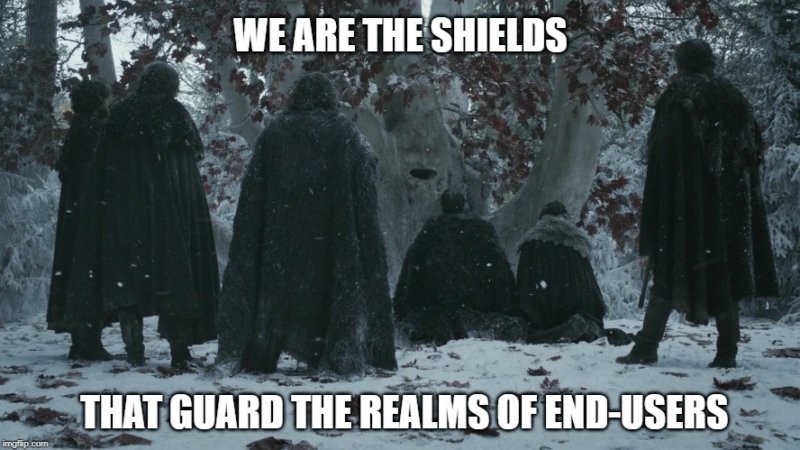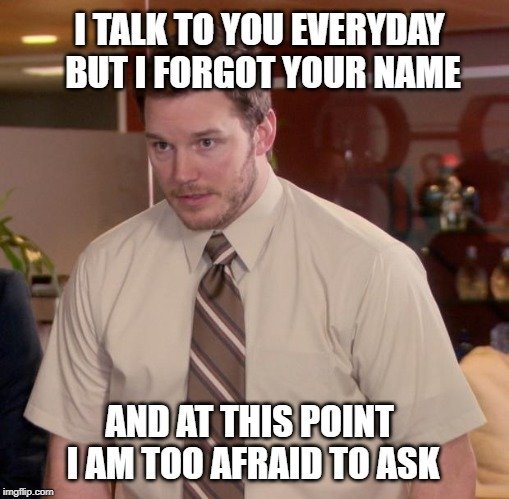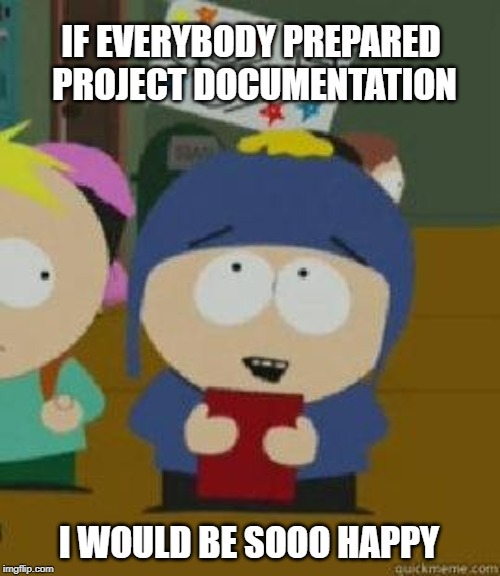19 June 2019
How to start in a new QA team: a survival guide for a beginner QA tester from an experienced specialist

In the life of every beginner QA tester, a day comes when they join a new project, team or a completely new company. For some, it’s a day like every other day. For others, it’s leaving their comfort zone to find themselves in a different reality of demanding tasks, agile processes, and brand-new fellow Quality Assurance specialists. In my article, I will present a few proven ways to survive the first week, be a valuable addition to the Quality Assurance team and contribute to the quality of the project.
All this without an unnecessary dose of stress of course. Welcome to my survival guide for a beginner Quality Assurance tester!
Quality Assurance tester – it sounds so proud
Contrary to popular opinion, Quality Assurance engineer is not just a random “clicker” for test scenarios straight outta Jira. Our work is much more important – we stand by the quality of the project as a whole, starting from creating specifications, supervising design processes to delivering the finished software.
In most cases, it ultimately depends on us – the brave Quality Assurance engineers – what software version will be passed onto the client’s end-users and whether they will be satisfied with the final product or not.
The QA tester also supports the team of programmers. Yup, support. We’re NOT being an obstacle in delivering tasks on time – like some would like to see us.
Starting work in a new project, and throughout its duration, remember that QA tester is an important and necessary part and the last link in the software development process.
Through your quality assurance skills, you are able to improve the delivered software quality, protect the project, the client and end users from unpleasant consequences of production errors. Doesn’t matter if you’re just a beginner QA tester or an experienced Quality Assurance specialist.

Make acquaintance with fellow Quality Assurance engineers
The first team meeting is always aimed at introducing you to the project. You’ll learn about business goals, the scope of work, dates of catch-up meetings and people you’re gonna work with.
Remember about your communication skills because there are a few things you can do already!
The people are worth focusing on
Get to know their names or nicknames (if they prefer to use those) and try to remember them. It’s a fairly simple matter (OK, maybe not for everybody), but it allows you to break the ice faster.
I bet you’d be annoyed if someone kept forgetting what your name was, or worse – giving you an unflattering nickname that they invented.
Role in the project
Observe other QA testers during the meeting, note what they do and what role they play in the project. This knowledge will be very useful when you finally get your first QA tester jobs – you’ll immediately know who to ask for help in a given issue.
And believe me, there will be A LOT of questions at the very beginning so it’s better to get the answer from the right person and not to waste the time of a random Quality Assurance engineer from a different project who might have no clue what you’re talking about.
Task-focused or chatter?
While getting to know the people with whom you’re gonna work, pay attention to whether they are more task-focused, or they like to joke around before they get down to business. It might seem a bit silly, but this knowledge will pay off during cooperation with every single QA tester in your team.
A typical “task-man” won’t ask you about your weekend plans (which doesn’t mean they are rude), and a “chatter” will tell you all about the movie they’ve recently seen before you even think to ask them about project-related matters.
Eventually, the bottom line is – QA tester has to compromise a little bit to adjust to others. Remember that such differences can result from different human personalities but they can also be a result of a particular culture.
If you work in an international team, try to find out something about the country where your colleagues come from
Use this knowledge to reduce the amount of misunderstanding and speed up communication in your Quality Assurance team. This approach will allow you to fruitfully cooperate with every person you meet in the project, improve communication skills in the team and have a positive impact on the atmosphere in general.

What does this software actually do?
In order to fulfill your QA tester duties, you need to get to know the project like the back of your hand (Capitan Obvious saves the day again!). What information are you going to need? Let’s make a checklist:
- The type of developed product
Whether it’s a web, desktop, mobile, or maybe an all-in-one application, it’ll determine all your further questions. For example, with the web application, you’ll want to know what browsers will be supported, and with the mobile solution, you’ll probably wanna know if it’s a hybrid or a native solution. - Customer’s business goals
Absolutely crucial issue! You just need to know what they want to achieve by introducing the app to their clients. Do they want to reach more customers? Or maybe they want to manage the production process better? Without a clearly specified goal, my dear QA tester, you’re in the dark. - Industry and end-users
You can’t test a solution if you have no idea who’s gonna use it and why. A young guy using a dating app like Tinder has completely different needs than a serious businesswoman looking to fund her new idea on some fintech hubs. - Country/region
A piece of important information is the origin country of the client and their customers, especially if it’s a different cultural circle than yours. Being aware of their background will allow you to explain potential communication problems during the project. But there’s more: every region has its favourite technologies, devices, operating systems, browsers, and so on. - Who’s representing the client
Find out who is the Product Owner in your project – what is their name, what are their responsibilities in their company, and how long they work there. Maybe it’s the client’s CTO? Maybe they are the head of a department? Or maybe the client’s company hired someone from outside just for this project? Any information about the PO (also not directly related to the project, such as their interests) will significantly simplify communication with them. Learn who’s who and meandering will be a piece of cake. - Don’t forget to do our own research!
You will learn a lot during the workshops with the client, but you need to remember about your own “investigation” too. Check out the official websites, articles about the client, social-media mentions, client’s previous projects, their reviews in app stores. I assure you that you’ll understand your role as a QA specialist better and maybe find some interesting things you can use later (sometimes users are so good at spotting bugs in their reviews, you won’t believe it…).
With that said, let’s consider the role of Quality Assurance in a software development team.
What’s my role in the team as a Quality Assurance specialist?
As a QA Specialist you are a key member of the team, never forget this! What does it mean in practice? Let me show you an example. At The Software House, we work in an agile software development model, in accordance with Quality Assurance trends.
That means solutions evolve through self-organizing teamwork. It requires a lot of planning, continuous improvement, and flexibility. And for you, it equals participating in all project meetings, as well as being prepared for them:
- During the daily meetings, know what you did the previous day, what are your current problems, and what are your plans for the following days of work.
- During planning, be able to determine what tasks you’re able to perform during the upcoming sprint, and prepare a retro summary of the testing process.
- Just like the rest of the team, you should take care of tasks in Jira and running Confluence or project documentation (or whatever are the tools that you’re using).
The most important thing – as a QA Specialist you care about the software quality in the project. But EVERYBODY, I can’t stress this enough, EVERYBODY as a team is responsible for the quality level of the solution provided.

Check out QA department job openings at The Software House 🚀
Work with the best and co-create exceptional projects 😎
QA tester as a double agent
In every project, you’ll act as a double agent – 007 has nothing on us! On one hand, you are part of the software development team, identify with the company, and take care of the best possible image of the project and the Quality Assurance team.
On the other, you also represent the client’s needs and must remember that what will be provided to them must be consistent with their business goals.
But most importantly, like the aforementioned Night’s Watch, you protect the poor and innocent end-users from the plague of bugged software.
As you can see, the role of QA Specialist can be difficult – there will be times when you will block the long-awaited “proda” entry to the developers’ despair and nervousness of the PM, to protect both the end-users and the client from the grim consequences of launching an application that has not been adequately tested.
Working as a Quality Assurance tester, you also need to prepare for the fact that sometimes you will be running several different projects at the same time or you will often change them. Thanks to this, our work is diverse, fascinating and full of challenges – but also demanding and a bit stressful (especially towards the end of the project).
Nevertheless, no other position in a software company will allow you to develop in so many different areas.
And if somebody’s angry at you, remember the golden rule – software QA specialists always want what’s best for the final product. We are the good guys! Or at least we’d like to think we are…
My recipe for starting work as a beginner QA tester in a new project?
- Don’t be afraid to ask a lot of question about the process, the scope of the project and the people involved.
- Get to know your project and the people you work with. Pro tip: everybody is different and that’s okay.
- Learn the project’s business goal and the client’s perspective.
- Find out a bit about the market where the application operates. Maybe you’ll need a cultural context?
- Be interested in the project as a whole – it cannot have any secrets for you!
- Be the devoted quality guard but also a good team player!
Good luck! 🙌

